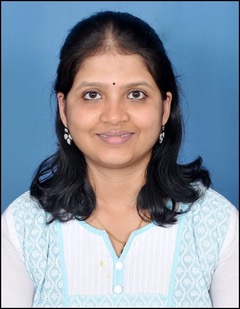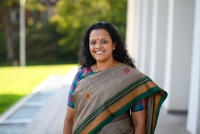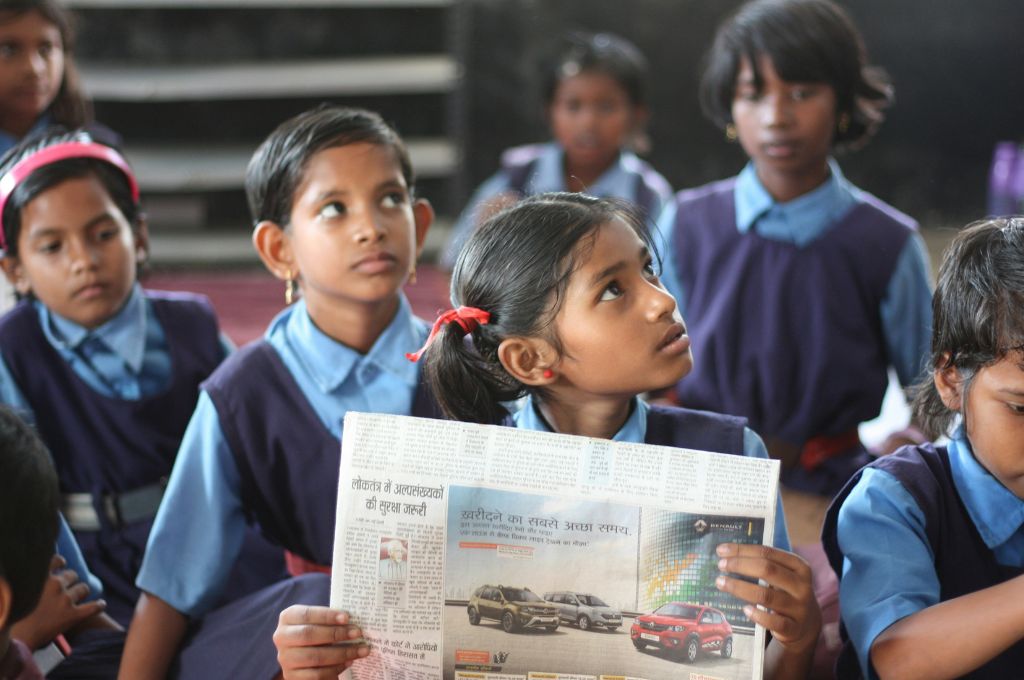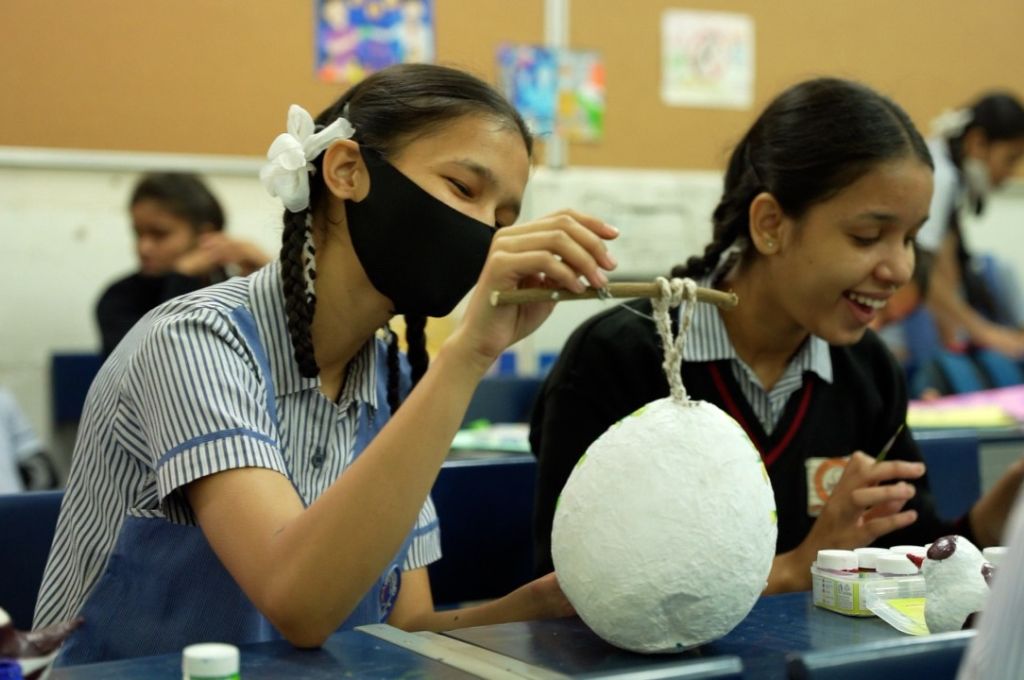Inclusive education is defined as a system of learning which includes everyone, and one that can cater to the learning needs of Children with Disabilities (CwD). India has asserted its commitment to inclusive education by agreeing to the Sustainable Development Goals (SDGs) and the UNESCO Salamanca Statement. Being a signatory to the Convention for the Rights of Persons with Disabilities, it also has a commitment to work towards inclusiveness in all spheres in the near future. Additionally, domestic legislations—Right to Education Act, 2009 (RTE), Rights of Persons with Disabilities Act, 2016 (RPWD), and National Trust Act, 1999—mandate ‘reasonable accommodation’ of children with disabilities in mainstream schools. However, in reality, these children fall through the cracks of the system. It is estimated that only 50 percent of people with disabilities are literate, and fewer still would have had the opportunity to study in a truly inclusive school.
As education in India and across the world shifted online in 2020 with the onset of the COVID-19 pandemic, it was accompanied by a rise of EdTech and e-learning platforms. This also brought into sharp focus the impact of unequal access to education and the growing digital divide. Several studies, including the ones by ASTHA in Delhi, Swabhiman in Orissa, and Vidhi Centre for Legal Policy across the states of Karnataka, Kerala, Tamil Nadu, and Andhra Pradesh, were conducted in India during the pandemic to assess the difficulties being faced by children with disabilities to access education during this time.
Pacta, in collaboration with Dr Kirthika Rajaraman, carried out research to study the impact of COVID-19 on inclusive education for children (aged 6-14) with Neurodevelopmental disabilities (NDD)—including autism, learning disabilities, cerebral palsy, and intellectual disabilities—in the state of Karnataka. The field study was conducted in rural and urban Karnataka. A total of 35 primary subjects were surveyed, 17 of whom were parents of children within the research demographic and 18 were teachers engaged with children within the research demographic. Six other stakeholders were also interviewed for a comprehensive analysis. This study—funded by Azim Premji University—concluded that there is a looming threat to inclusive education practices and their manifestation in the post-pandemic school. A combination of short-and long-term strategies to drive and improve the participation of children with disabilities in the education system is the need of the hour.
Here are the some key findings from the exploratory study:
Status of inclusive education in India
- Most of the children in special schools have had an experience in inclusive or regular schools. Reasons for not continuing in regular schools included a lack of professional knowledge, peer and teacher acceptance, quality support, or learning opportunities in inclusive schools.
- The majority of the parents felt the need to expand the admission criteria. According to them several informal barriers—IQ tests, mock observation by teachers, ability to write or speak—limit access to inclusive education.
- In many urban inclusive schools, a higher fee was often demanded without any special service or facility by the school.
- Most of the rural inclusive schools surveyed were run by nonprofit initiatives. Other rural schools accepted children with different abilities either due to lack of knowledge of special needs or due to lack of acceptance by the parents.
- In the inclusive schools studied, one special educator catered to 20-22 children on average. In comparison, a special educator in special schools supported six-seven children on average.
- Most parents of children with disabilities stated that school education for their child must provide skills required to face the real world, socialise, and lead an independent and productive life.
- Disability-specific accommodations in examinations still need to cover a wider spectrum of requirements.
- Bullying and teacher neglect of children with disabilities are not uncommon.
Learning experience during COVID-19
- The penetration of online learning for children with Neurodevelopmental disabilities is lower in rural than urban areas. Thirty-eight percent of rural schools (all of which were nonprofit-run) were found to use both synchronous and asynchronous methods during the lockdown and around 80 percent of the urban teachers used both methods. Where 25 percent of rural school teachers reported using only asynchronous technology, none of the urban schools did so. Additionally, 37 percent of rural teachers reported that no technology-based online education was done. However, only 10 percent of urban teachers reported not using any technology for online education.
- Half of the parents interviewed reported that their child is completely dependent on them for accessing online education.
- During online education, a majority of teachers felt that the parents’ involvement in the education of their children has increased from what is usually expected from them. However, most parents reported an inability to teach their child during the lockdown due to lack of necessary training or time (due to work and household commitments). Most parents were found to be feeling helpless, anxious, and/or exhausted due to their increased responsibility caused by a shift to online education. Despite the difficulties, around 76 percent of parents were not comfortable with resuming direct or physical schooling for their children due to the heightened sensitivity of their children.
- In a few cases, online learning showed a potential for benefiting children who experience stress and difficulty in socialising, such as autistic children. Some parents also indicated that greater learning could be achieved due to their active involvement.
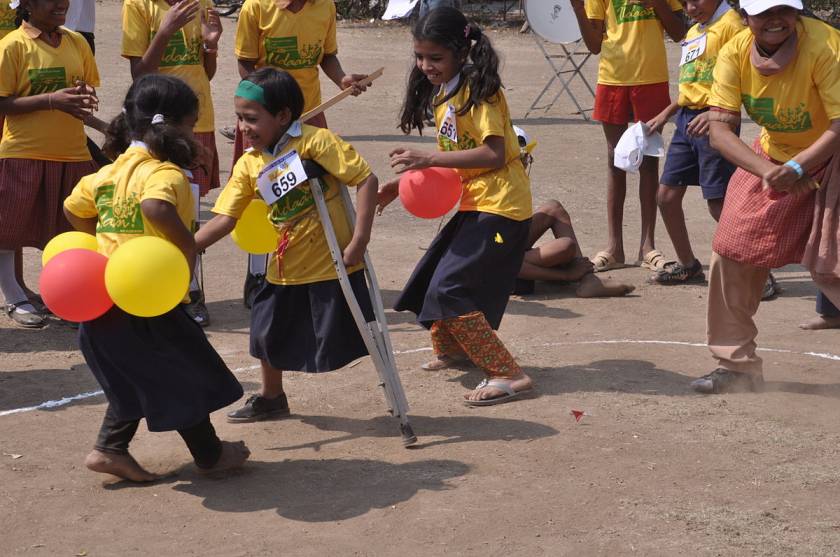
Here is a list of recommendations going forward:
Inclusive education governance
1. Integrated legal framework for inclusive education
An integrated legal framework, norms, and standards for school infrastructure and curriculum across the Right to Education Act, Right of Persons with Disabilities Act , and state education laws should be looked at. Samagra Shiksha Abhiyan, which has this mandate, is best placed to carry this goal ahead.
2. Establishment of a convergence cell
A convergence cell—comprising health, women and child, and education ministries—that conceives and orchestrates programmes for inclusive education, is likely to bring improved results. Vetting of proposed programmes and interventions by the Rehabilitation Council of India can also make the process more accountable.
3. Creation of a robust database
A unified federal or state database of children with disabilities must be assembled. The U-DISE data maintained by schools collects information about these children but does not conduct outreach interventions. As was noted during the pandemic, nonprofits which had up-to-date databases of children within their reach were able to respond faster.
4. Broadening of the scope of Unique ID for Persons with Disability (UDID) scheme
Registration under the UDID scheme must be broadened beyond the (currently) limited set of disabilities recognised under The Rights of Persons with Disabilities Act of 1995.1
Tailored and individualised educational plans
1. Tailoring individualised educational plans to meet ongoing student needs
Comprehensive special educational needs are not being met in mainstream schools. Parents often have to bear the burden of orchestrating education, therapy, and vocational training designed to suit the child’s needs. This onus must shift to qualified, informed, and invested experts. Tracking progress may be enabled through individualised educational plans.
Additionally, it is uncertain whether school education is designed to provide the skills necessary for a child with disabilities to lead an independent and socially productive life. Schools may find it easier to provide basic educational support based on an assessment of functional, literacy capability at a Grade 3rd or a Grade 5th level. Thereafter, vocational skills, life skills for independent living, social interaction, and productivity could be introduced.
Welfare-oriented legal interventions
1. Leveraging rights of children with disabilities through special courts
The Rights of Persons with Disabilities Act, 2016 (RPWD) requires states to set up special courts to provide speedy trials for people with disabilities. The State Commissioner for Persons with Disabilities is bestowed with the powers of a civil court to enquire into matters of violation of rights under the RPWD Act. These special courts must address the failure of mainstream schools to fulfil their obligations of inclusive education. They should also examine the impact of the pandemic on inclusivity in education.
2. Introducing compensatory education
In the United States of America, students with disabilities are entitled to a free appropriate public education (FAPE) under the Individuals with Disabilities Education Act (IDEA). If school officials fail to provide students with a FAPE, the courts may grant appropriate relief. Commonly sought under IDEA is the concept of compensatory education, which requires a school board to provide a child with appropriate educational services to compensate for its past failure to provide a FAPE. Requested forms of compensatory education may include physical and occupational therapy, summer educational services, tutoring, and small group instruction. A similar concept of compensation or make-up education can be provided to children with disabilities in India who were denied or could not access proper educational opportunities.
3. Increasing the number of special educators
There are nearly eight million children with disabilities in India but special educators constitute only 1.35 percent of total teacher strength. Apart from Kerala, the Right to Education Rules do not mandate schools to have special educators. Kids with disabilities, especially those with Autism Spectrum Disorder or multiple disabilities, often need individual attention from the educator. Therefore, mandating adequate engagement of special educators in all schools and raising the capacity of existing teachers is much needed.
4. Strengthening School Management Committees (SMCs)
The School Management Committee (SMC), which by design includes representation and the voice of the children with disabilities, could play a crucial role in inclusive education. According to the 2012 amendment of the Right to Education Act, parents of children with disabilities must be included in all SMCs.
—
Footnotes
- The older Act had a smaller set of listed disabilities than the Act from 2016.
—
Know more
- Learn why parents of children with disabilities are protesting the National Institute of Open Schooling (NIOS) exams.
- Read about how schools in the United States of America responded to the pandemic in the context of education for children with special needs.

